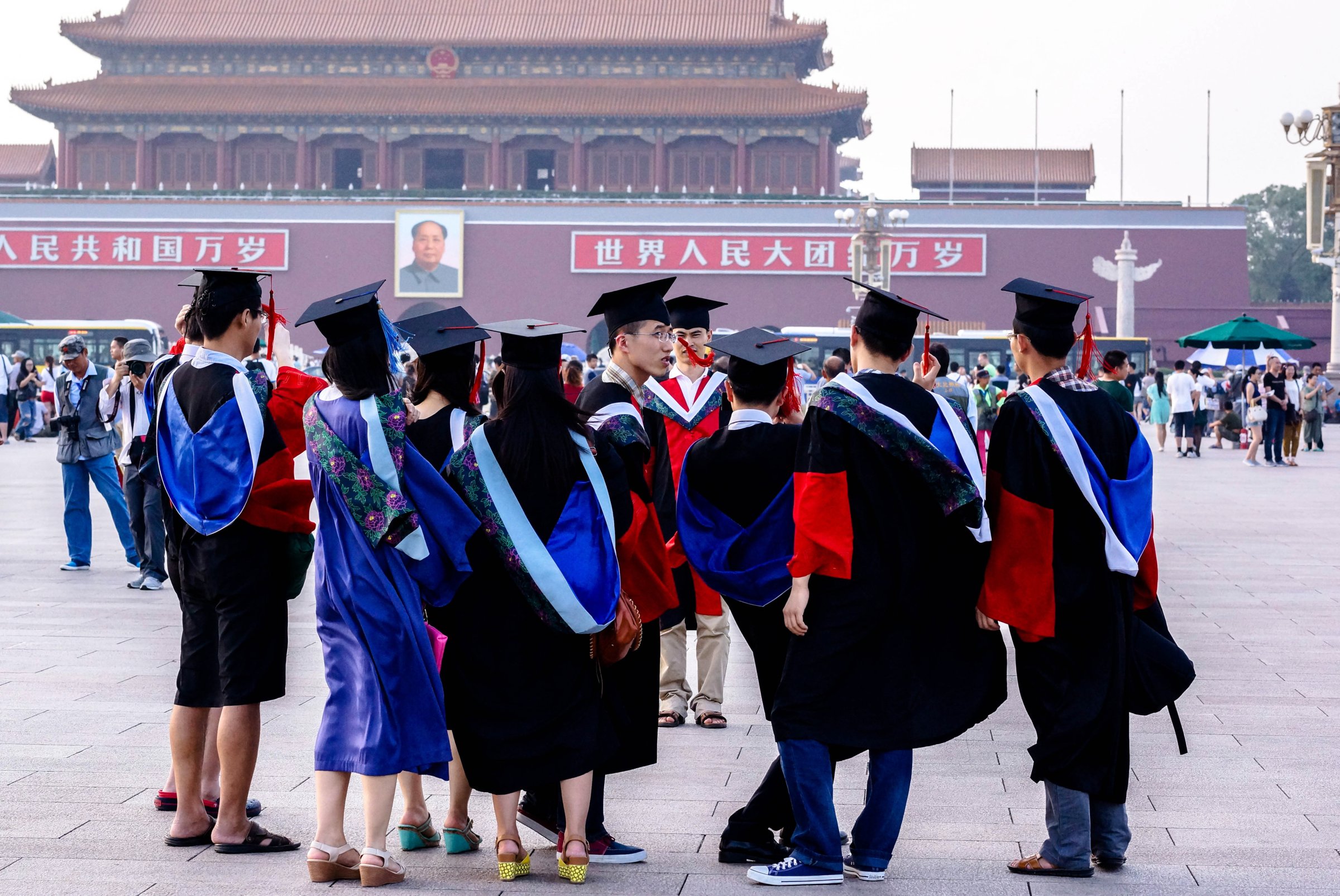
Chinese college students looking for a campus counselor will soon enjoy a guide with an added qualification: unwavering commitment to the Chinese Communist Party. A new draft proposal published on the Chinese Education Ministry’s website requires that all college counselors, who are usually graduate students or recent alumni, to be members of the Chinese Communist Party. Tutors should “carry out socialist core values education and integrate such values into all aspects of the daily management of student services to help shape students’ daily conduct,” said the Education Ministry’s online notice. The proposal also mandates that these tutors, who do everything from career counseling to financial-aid clarification, should monitor students’ online activities and steer virtual chatter toward the proper ideological stance. (Yes, the proper ideology would be socialism.)
Already, party membership was an unwritten prerequisite for a counselor position, according to former and current Chinese tutors. “The major responsibility of counselors is political and ideological education, so generally the counselors are all party members,” says Zheng Zainian, a student counselor at Zhengzhou University in central China. “If you are not a party member, you are not allowed to participate in the implementation of political and ideological education.” The Education Ministry’s new draft proposal will formalize this obligation. In China, such proposed amendments are almost always passed.
China’s Education Ministry has deemed universities an “ideological frontline,” as the administration of President Xi Jinping has doubled-down on communism as a unifying national ideology. Chinese college students may be traveling abroad in greater numbers and aiming to work after graduation at private companies or multinational firms. But the Chinese Communist Party, which has ruled for 66 years, has in recent years fought back against criticism that its ideological core is irrelevant in a modern, capitalist China. Propaganda campaigns have infused daily life with Marxist terminology, and hundreds of vocal advocates of Western-style democracy have been harassed or detained by government authorities. The Chinese Communist Party boasts nearly 90 million members—and its ranks are growing. Almost 40% of the party’s members have university degrees.
The proposed new rule for tutors is part of a larger crusade to purify Chinese college campuses. Last month, China’s Publicity Department, along with the Education Ministry, released guidelines requiring college instructors to receive at least 20 hours of ideological training each year. In January at an educational forum attended by representatives of top Chinese universities, Education Minister Yuan Guiren ordered “textbooks that disseminate Western values” banned from classes. “Any views that attack or defame the leadership of the party or smear socialism must never be allowed to appear in our universities,” Yuan was reported as saying by China’s official media.
Shortly before Yuan’s speech, President Xi urged Chinese universities to strengthen their “ideological guidance” of students. Over the past couple years, academics who once publicly expressed dissent or ideas not in harmony with the Communist Party’s have been spooked by the “seven don’t speaks,” as a list of taboo topics is known. Among the forbidden seven are freedom of speech and the historical errors of the Chinese Communist Party, according to the China Media Project at the University of Hong Kong.
Some of the progeny of China’s elite, however, are not bound by such limitations. More than 300,000 Chinese university students are being educated in the U.S. this academic year, a 10% increase over the year before, according to the Institute of International Education. (Indeed, nearly one in three foreign students in the U.S. is now Chinese.) President Xi’s own daughter attended Harvard. Some of China’s most promising mid-level diplomats and bureaucrats attended graduate school abroad. Somehow they were able to survive the onslaught of pernicious Western values.
As for China’s corps of college counselors, the new rule won’t make much difference to their lives. Zheng Yu, who worked as a part-time counselor at Nanhua University in central Hunan province while he pursued his master’s degree, is now a full-time tutor. “I like to hang out with students, and that’s why I chose to continue this work,” he says, listing one of his main functions as providing guidance on hot social issues. “Such education usually takes the form of a heart-to-heart talk.” There’s no better way to ensure ideological rectitude than a personal touch.
—With reporting by Gu Yongqiang / Beijing
More Must-Reads from TIME
- How Donald Trump Won
- The Best Inventions of 2024
- Why Sleep Is the Key to Living Longer
- Robert Zemeckis Just Wants to Move You
- How to Break 8 Toxic Communication Habits
- Nicola Coughlan Bet on Herself—And Won
- Why Vinegar Is So Good for You
- Meet TIME's Newest Class of Next Generation Leaders
Contact us at letters@time.com